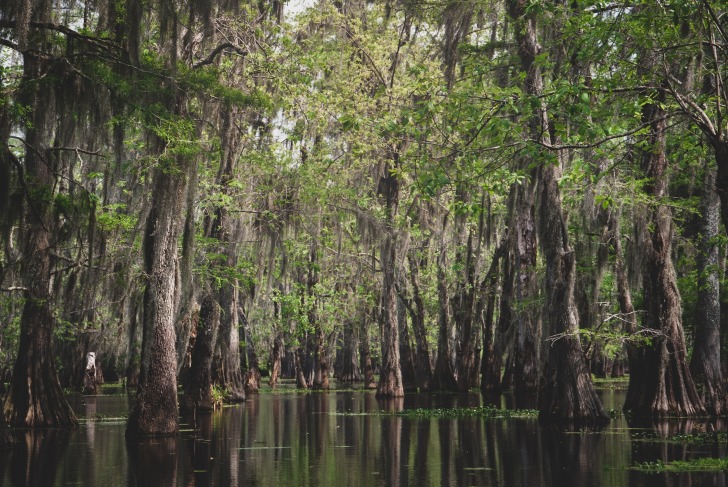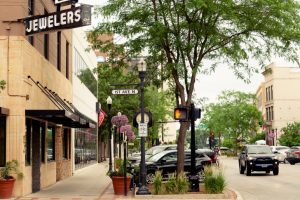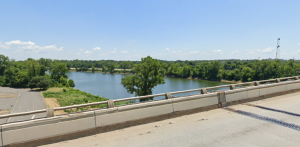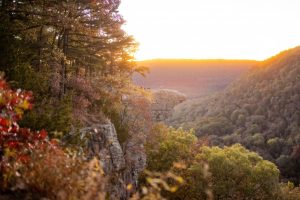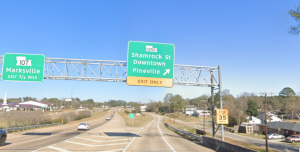 Louisiana : Safety by City
Louisiana : Safety by City
- Baton Rouge
- Bogalusa
- Bossier City
- Chalmette
- Farmerville
- Franklinton
- Houma
- Kenner
- Lafayette
- Lake Charles
- LaPlace
- Mandeville
- Marrero
- Metairie
- Monroe
- Natchitoches
- New Iberia
- New Orleans
- Pineville
- Ponchatoula
- Prairieville
- Shreveport
- Slidell
- Springhill
- Terrytown
Located along the Vermillion River, Lafayette, Louisiana boasts a metropolitan population of almost 500,000 inhabitants making it the third-largest in the state.
Incorporated in 1836, Lafayette has the highest number of oil and natural gas workers in the state.
“The Hub City” is also home to the University of Louisiana’s Lafayette campus, which has diversified the economy from just being an oil and gas town.
In recent years, the city has experienced a population boom and become a center of technology, healthcare, social services, retail, banking, and aerospace.
Notable corporations include Amazon, JP Morgan Chase, CGO, Brookshire Grocery Company, Rouses Markets, Petroleum Helicopters International, and the Ochsner Health System.
The city features a diverse population consisting of Louisiana creole and Cajun residents and was named the “Happiest City in America” in 2014.
While this city and surrounding Parish are generally safe, there are some precautions you should take before visiting.
Keep reading to learn more!
Warnings & Dangers in Lafayette

OVERALL RISK: LOW
With the moniker “Happiest City in America,” Lafayette does not experience much crime, but the city has seen an uptick within the past two years. While violent crime is higher than the national average, it is lower than the state average. The crime statistics are higher because property crime is high in Lafayette.

TRANSPORT & TAXIS RISK: LOW
With three colleges in the area, ridesharing and taxis are readily available and safe to use throughout the city. Also, busses are the only transportation option, which is also safe to use day or night.

PICKPOCKETS RISK: LOW
While pickpocketing can occur on crowded busses and in crowded areas, the risk is low. While pickpocketing is not something you should be afraid of when visiting the city, you always want to be on guard and keep your purse and backpack to the front and wallet in your front pocket.

NATURAL DISASTERS RISK: HIGH
Given its location in Louisiana, Lafayette is on the direct path of hurricanes, which have decimated the area since the beginning of recorded history. During the most active hurricane years, the areas from the Florida Panhandle to South Texas could get multiple strong hurricanes during the season so be prepared.

MUGGING RISK: LOW
Muggings generally don’t happen in Lafayette unless you give the criminals a reason to corner you in a dark alley. This is not a situation to worry about but always keep your wits about you, especially when walking late at night, and never flash valuables in public.

TERRORISM RISK: LOW
Lafayette is not a location targeted by terrorists. While school shootings have been known to occur on college campuses, the threat of a terrorist attack is low.

SCAMS RISK: LOW
Similarly, there are few-if-any scammers in Lafayette. This is not an issue tourists complain about or have reported to the police in the past. Most scams in this city occur online, which target individuals from across the United States.

WOMEN TRAVELERS RISK: LOW
While solo female travelers to Lafayette will not likely encounter issues, they should always protect their drink when out at a bar. Also, it is advisable not to get drunk at bars when alone as this could lead to unwanted attention.

TAP WATER RISK: LOW
According to TapSafe.org, Lafayette Parish’s tap water has no active health violations and is considered safe to drink. The water meets all EPA guidelines and won’t make you sick to your stomach or have any adverse effects.
Safest Places to Visit in Lafayette
Since you can walk across the city at any time of day without issue, Lafayette is a great and safe place to visit.
The safest areas with the least amount of crime include:
- Milton
- Petite and John Leblanc Road
- Johnson Street and Ambassador Caffery Parkway
- Kaliste Saloom Road and Silverbell Parkway
- Johnston Street and Brentwood Boulevard
- Kaliste Saloom Road and Ambassador Caffery Parkway
- Pont Des Mouton
- Rue de Belier and West Congress Street
- Elks and Pilette
- Broadmoor
Also, the areas around the tourist attractions are safe to visit.
These include the Alexandre Mouton House, the Cathedral of Saint John the Evangelist, Brandt House, Daigle House, Charles H. Mouton House, Hope Lodge No. 145, Old Lafayette City Hall, Holy Rosary Institute, and the First United Methodist Church.
Also, the University of Louisiana at Lafayette, Remington College, and South Louisiana Community College are well patrolled by police and campus security.
Places to Avoid in Lafayette
Overall crime tends to be the highest in the center of the city, ballooning out to the north and west.
According to CrimeGrade.org, the least safe areas in the city for overall crime are parts of Arbolada Addition, around Hobard Municipal Golf Course, at the intersection of the Northeast Evangeline Thruway, parts of Long Bridge, parts of Anse La Butte, and areas of Mouton.
Interestingly enough, the areas on the outskirts of Lafayette have a higher crime percentage than the city proper.
A good rule of thumb for visiting the Parish is the most reported crimes occur in the western parts with a little under 1,400 per year.
However, the southern portions of the Parish show fewer cases with around 453 per year.
Safety Tips for Traveling to Lafayette
- Attend to your drink. Nothing is better than a cold beer on a steamy sweltering day. However, when out at the bars having a few drinks, always be attentive to your drink. Lafayette is a college town, so it is not unheard of for solo female travelers to be slipped drugs in their drink.
- Bring and wear sunscreen. The sun is high in the sky during the summers, and it becomes incredibly hot. When you’re out, lower your risk of a severe sunburn by applying high SPF sunscreen according to the directions. This will help prevent skin cancer and ensure you don’t spend part of your time in the emergency room treating burns.
- Consume a lot of water. Make sure to have a large jug of water when exploring for the day, either in the city or out in the wilderness. The heat will cause you to lose a lot of water through sweat, so you want to be prepared by remaining hydrated throughout the day and night. Heat exhaustion and dehydration are real risks in this portion of the country.
- Contact the ranger’s office when camping or hiking. There are plenty of aggressive wild animals in the wilderness that can harm you when hiking or camping including crocodiles, snakes, poisonous bugs, large cats, and other land and water creatures. To ensure you are safe as possible, always report your desired hiking or camping locations to the ranger’s office and when you plan to return. If you get lost or have an issue, they will search your area so you can quickly get help.
- Don’t feed wildlife. If you come across wildlife while camping or hiking stay away from them. Don’t try to pet the cute animal or be a hero and feed a crocodile, this is just asking for trouble. Instead, observe them in their natural habitat from a distance.
- Lock your vehicle. The main crime issues in Lafayette surround property crimes, including theft from cars. It’s common for criminals to walk around checking to see if vehicles are locked. Therefore, don’t give them a chance to enter your automobile, simply lock the car whenever it’s not in use.
- Never leave valuables in your car. Similarly, never leave valuables or any items in plain sight. Keep valuables always locked away in a safe or on your person. If a criminal sees a valuable item on the seat, they won’t hesitate to smash your window to get the article.
- Pack for the weather. Mild in the winter, blazing hot in the summer. The temperatures and humidity levels are fairly consistent, so it’s easy to pack accordingly. That means light and airy clothes in the summer and long pants and sleeves with a light jacket in the winter. However, hurricanes are common in the area so you must pack for this worst-case scenario, and bringing a first aid kit, especially if you are hiking or camping, is always a good idea.
- Prepare for a hurricane. Hurricane preparation doesn’t stop at simply packing a raincoat and rain boots. Before your trip to Lafayette, you must know what to do if a hurricane occurs. This means knowing where the nearest shelter is from your hotel or Airbnb, knowing the evacuation routes to get out of town if advised. Remember, hurricanes often lay the groundwork for severe flooding, tornadoes, and waterspouts, all of which can be extreme safety hazards.
So... How Safe Is Lafayette Really?
Lafayette is a beautiful and charming southern town with friendly people, interesting attractions, and excellent food.
While you will likely not have any issues in the city or surrounding Parish, it is always important to be prepared.
With such high property crime rate, you must take the proper precautions like locking doors and windows when not in use and never flashing valuables in public.
Hurricanes are also a major safety threat, so knowing how to prepare accordingly is a critical safety tip.
For those looking to camp or hike in the area, the main safety issues are heat exhaustion and dehydration, as well as animal attacks.
While these are rare, it is best to stay away from any wild animals you may come across.
Following these general tips and knowing what to do in certain situations will ensure you have a pleasant and wonderful trip to Hub City.
How Does Lafayette Compare?
| City | Safety Index |
|---|---|
| Lafayette | 87 |
| San Diego | 67 |
| Miami | 55 |
| Honolulu | 65 |
| Chicago | 65 |
| Dallas | 64 |
| Memphis | 54 |
| Melbourne (Australia) | 80 |
| Montreal (Canada) | 81 |
| Sydney (Australia) | 80 |
| Santiago de Chile (Chile) | 71 |
| Vienna (Austria) | 88 |
| Hong Kong (China) | 70 |
Useful Information

Visas
Regardless of where you travel in the United States as a citizen, neither a passport nor visa is required. However, you must have a state-issued driver’s license to drive or a regular identification card to take the train, a bus, or an airplane. If you are coming to Lafayette from another country, then check with your local state department to understand travel requirements into the U.S.

Currency
The entire country uses the U.S. dollar, and no other currencies are accepted, including in Louisiana. However, banks, ATMs, and money exchange locations are available for those traveling from outside of the United States. Due to COVID-19, many places have moved to cashless payments, so cash may not be accepted.

Weather
The summer months are by far the hottest and most humid with temperatures average highs in the ’90s between June and August and lows in the mid-70s, which are also the wettest months. December through March have the most comfortable temperatures and humidity levels and are the best time to visit. Snow in Louisiana is exceedingly rare but could occur in trace amounts.

Airports
Lafayette, Louisiana is served by the Lafayette Regional Airport. The next largest and the closest airport is in Baton Rouge, which is 56-miles away. For longer flights, it is advisable to go to New Orleans International Airport, which is 107 miles from Lafayette.

Travel Insurance
Travel insurance is not required for U.S. citizens traveling between states, but it is always a good idea. With the current uncertainty of the world, having travel insurance adds another layer of protection to your trip in the instance of cancellations or other travel-related problems. For those traveling internationally to Lafayette, travel insurance is highly recommended.
Lafayette Weather Averages (Temperatures)
Average High/Low Temperature
| Temperature / Month | Jan | Feb | Mar | Apr | May | Jun | Jul | Aug | Sep | Oct | Nov | Dec |
|---|---|---|---|---|---|---|---|---|---|---|---|---|
| High °C | 16 | 18 | 22 | 26 | 30 | 32 | 33 | 33 | 31 | 27 | 22 | 18 |
| Low °C | 6 | 8 | 11 | 15 | 19 | 22 | 24 | 23 | 21 | 15 | 10 | 7 |
| High °F | 61 | 64 | 72 | 79 | 86 | 90 | 91 | 91 | 88 | 81 | 72 | 64 |
| Low °F | 43 | 46 | 52 | 59 | 66 | 72 | 75 | 73 | 70 | 59 | 50 | 45 |
Louisiana - Safety by City
| City | Safety Index |
|---|---|
| Baton Rouge | 60 |
| Bogalusa | 64 |
| Bossier City | 53 |
| Chalmette | 62 |
| Farmerville | 75 |
| Franklinton | 63 |
| Houma | 63 |
| Kenner | 77 |
| Lafayette | 87 |
| Lake Charles | 73 |
| LaPlace | 75 |
| Mandeville | 77 |
| Marrero | 73 |
| Metairie | 61 |
| Monroe | 32 |
| Natchitoches | 76 |
| New Iberia | 74 |
| New Orleans | 57 |
| Pineville | 81 |
| Ponchatoula | 61 |
| Prairieville | 72 |
| Shreveport | 52 |
| Slidell | 76 |
| Springhill | 80 |
| Terrytown | 57 |
